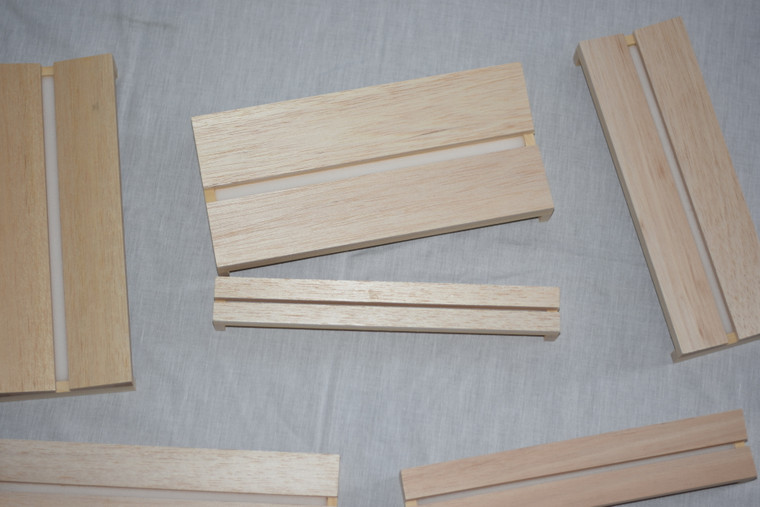
Typical woods are balsa and lime. Both will take pinning and re-pinning numerous times without showing wear. For those of you buying for younger entomologists, please note that balsa is very easy to "ding" and damage to the edges of the boards can happen quite easily.
Angled boards are the most commonly used; with the wings in an angled position, the insect has a more "lifelike" appearance. However, this is (as always) a matter of preference. For some moths and butterflies, the flatter appearance can "show off" the wing pattern more clearly.
There is a reality that some samples (due to size, moisture, etc.) will get a little "droopy" over time. A specimen that starts out angled slightly upward will end up flat; one that starts out flat may end up with the wings dropped below the horizontal, which may look slightly less "lifelike".
As always, this is really about preference and practice (and possibly budget). All the boards we carry will give an attractive result - there is no wrong answer in choosing spreading boards!
A final note: for those of you who are less familiar with the process, the size of the body and the wings of the insect being spread and dried will dictate the width of the groove and the board. The body rests in the groove, and the wings are spread on the two sides of the board. Clearly a Polyphemus moth will need greater width in both areas than a Cabbage white butterfly. The length of the boards allows for a number of specimens to be spread at the same time.
Fixed balsa spreading boards come in six sizes:
30 x 4cm, groove 4mm.
30 x 6cm, groove 6mm.
30 x 8cm, groove 8mm.
30 x 10cm, Groove 10mm.
30 x 12cm, Groove 12mm.
30 x 14cm, Groove 14mm.















